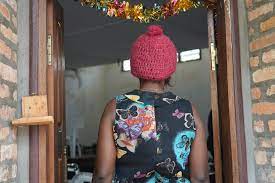‘They turn our farms into rape centres’: Russian mercenaries accused of abuse in Central African Republic
Post By Diaspoint | July 23, 2024

The two sisters had just arrived at their family’s field when two Russian mercenaries showed up. They held the girls at gunpoint and took turns raping them. “We told them we were virgins and begged them not to touch us. But they wouldn’t listen,” says Koko*.
She was 17 when the attack happened on a Saturday morning last September in the family’s field of yams and cassava in Ngaguene village, near the Central African Republic (CAR) town of Bouar.
“Whenever we tried to scream for help, they used their hands to cover our mouths so that nobody could hear us,” she says.
The former French colony has suffered decades of instability since independence in 1960, with the first of six coups in 1966, when self-proclaimed “emperor” Jean-Bédel Bokassa seized power.
Nearly 70% of CAR’s 5.6 million people live below the poverty line; conflict, disease and malnutrition have left it with the world’s highest measured mortality rate and fourth-worst maternal mortality rate. Although rich in resources, including diamonds and gold, CAR has little infrastructure, poor healthcare facilities and few major roads. Tensions between 10 different ethnic groups, with roots in historic slave raids, were fuelled by the security forces being organised along ethnic lines.
The 2012-14 civil war displaced about a quarter of CAR’s population. In 2013, the Séléka (coalition) of rebel militias from the marginalised Muslim north seized the capital, Bangui, and ousted François Bozizé, president since a 2003 coup, installing Michel Djotodia as the first Muslim president. The Séléka subsequently ran amok, killing Christians and supporters of Bozizé.
The UN security council established a peacekeeping force, Minusca, in April 2014, which incorporated African Union and French forces (who have since been accused of sexually abusing children).
When the UN peacekeepers were unable to restore order, Faustin-Archange Touadéra, president since 2016 and Bozizé’s former prime minister, turned to Russia for arms and military support. The Wagner group, Russian mercenaries used by the Kremlin to expand its influence in Africa, arrived in 2018. Wagner fighters have since seized control of CAR’s mines.
From exile in Guinea-Bissau, Bozizé now heads the Coalition des Patriotes pour le Change (CPC) – an alliance of six rebel groups that incorporates “anti-Balakas”, Christian and animist militias opposed to the Séléka. In April a UN court issued an arrest warrant for Bozizé over possible crimes against humanity committed by the military between 2009 and 2013.
In late 2020 CPC militias attacked Bangui but government forces, backed by Wagner mercenaries and Rwandan troops, repelled them. The CPC has since been carrying out attacks from neighbouring Chad and Sudan, and in early 2023 launched a new offensive.
Oren Gruenbaum
It was her younger sister’s 15th birthday. She was pinned to the ground by one of the men, then slapped and punched in the face. “There were wounds all over her face,” says Koko. “She was beaten to a point where she could barely talk or even see clearly.”
Our daughters are no longer safe in their own farmlands
Félicité Padou
Allegations of rape by Russian mercenaries, who have a large presence in CAR’s restive north-west region, have escalated in recent months. Women and girls are avoiding going to the fields and markets, and food shortages are being reported as a result.
In and around Bouar, a market town lying on the main road from the country’s capital, Bangui, to the border with Cameroon, traders who buy crops directly from farmers say they have listened to numerous young women tell how they were raped in farms by “white soldiers”, as locals call the Russian mercenaries.
Read More from original source
